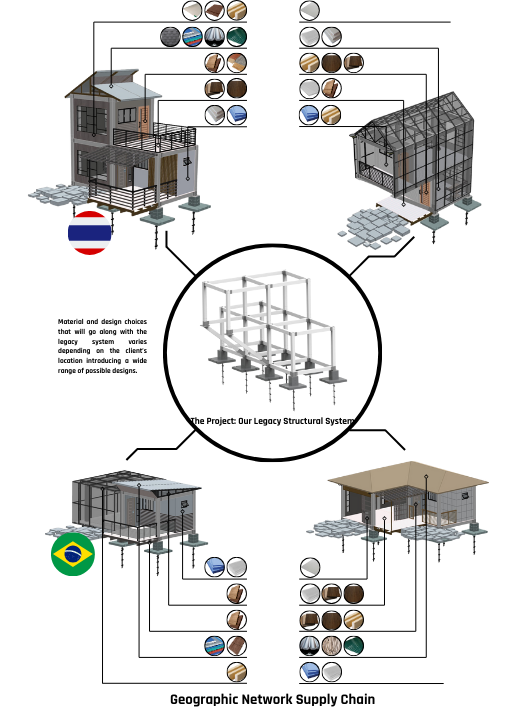
Leveraging Generative Solutions For HomeQube PEB
Introduction to System Architecture
System Architecture is an explorative science that studies component functions, patterns, and behaviors.
- • Functional and Pattern Model Fusion Development
- • Component Behavior Outcomes
- • Outcome Generation
By reimagining traditional design process, we leverage system engineering principles to create more robust, scalable, and generative solutions.
- ✓ Generative
DESIGN
- ✓ Generative
ENGINEERING
- ✓ Generative
OPERATIONS
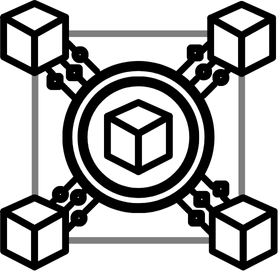
What Are PEB Homes?
PEB homes are revolutionizing modern home construction by providing a cost-effective, efficient, and sustainable alternative to traditional building methods.
- • Affordable and Time Saving
Uses pre-designed, pre-engineered parts, assembled on-site, for faster construction and lower costs. - • Environmentally Conscious
Reduces wastes and promotes eco-friendly building practices. - • Precision and Quality
Ensures accuracy and consistency in every build. - • Mass Complexity
Flexible designs allow for customizable, complex layouts tailored to your preferences. - • Durable and Low Maintenance
Perfect for harsh climates, offering long-term strength and minimal upkeep.
Plan

Assembly

Isometric
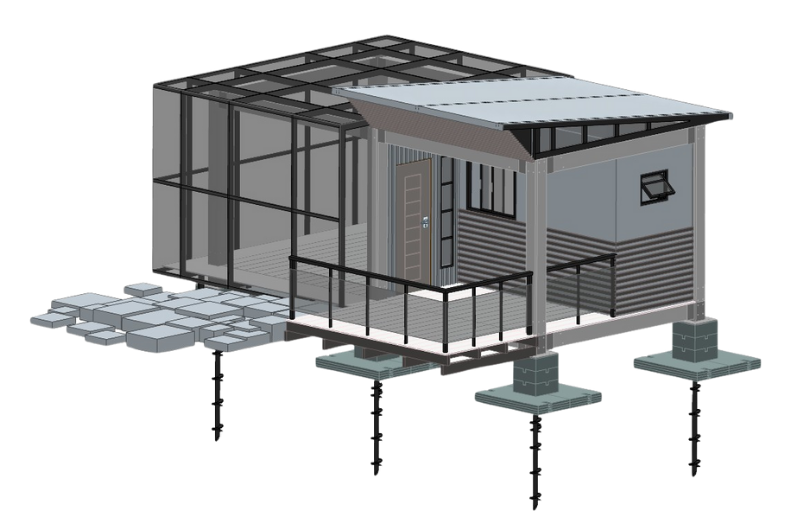
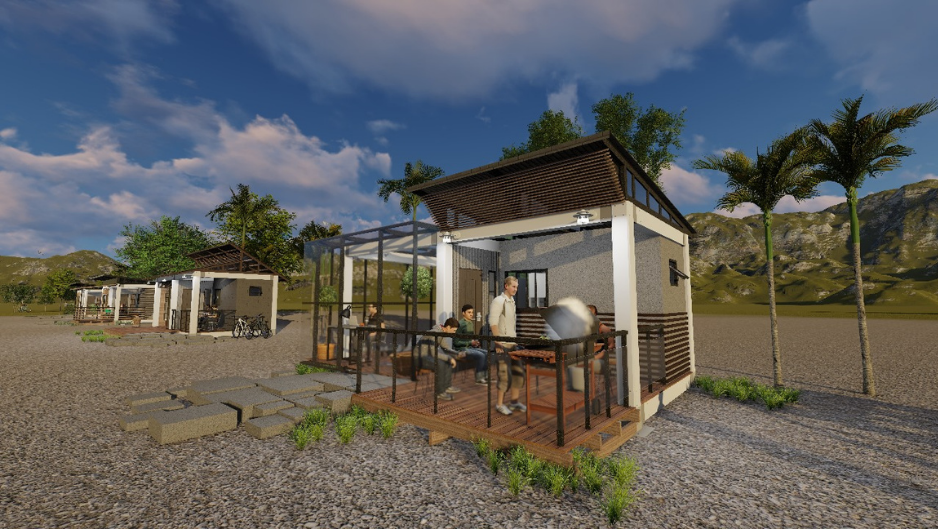
PEB Materials & Sustainability
At the core of PEB construction is the use of sustainable building materials, ensuring that each structure is environmentally friendly and contributes to a smaller carbon footprint.
Glass Fiber Reinforced Polymer
Glass Fiber Reinforced Polymer (GFRP) is a composite made from plastic reinforced with white fine glass fibers, valued for its strength, durability, versatility.
Key Features
- • Corrosion-resistant: Ideal for harsh corrosive environments.
- • Moisture and chemical-resistance: Performs well in demanding conditions.
- • Applications: Used in construction due to its superior durability and performance compared to conventional materials.
• High strength-to-weight ratio: Stronger and lighter than many traditional materials.
| Homeqube GFRP | Steel | Concrete | |
|---|---|---|---|
| Manufacturing Method | Pultrusion | 28 | 5,179.26 |
| Energy (MJ/Kg) | 3.10 | 7.16 | 0.95 |
| % of Waste During Manufacturing | 1.40% | 4.10% | 5.00% |
| Required Finished Product + Manufacturing Waste | 14,119,582 kg | 28,825,484 kg | 119,814,188 kg |
| Total Energy Required in (5/18*Total Energy req'd) | 12,158,529 kWh | 57,330,685 kWh | 31,617,633 kWh |
| Total Tons of C02 Emission | 4,116 | 19,408 | 10,703 |
| Emission Reduction from using GFRP | N/A | 78.8% | 61.5% |
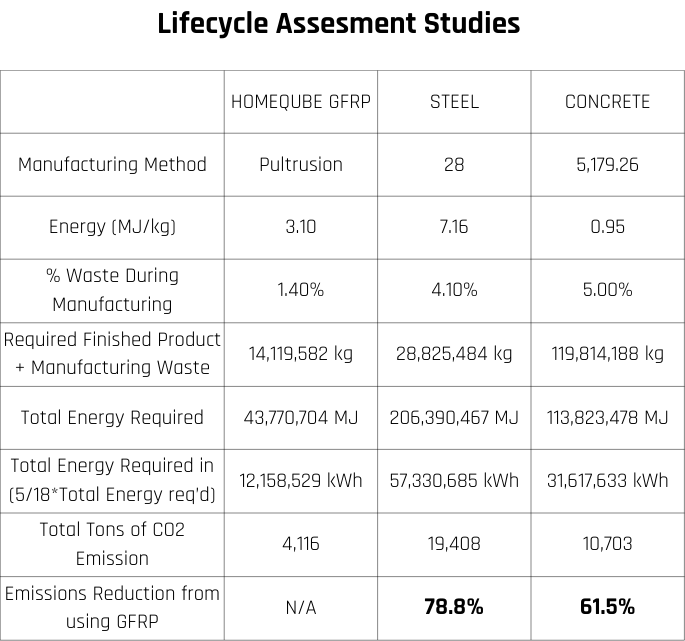
Fiber Metal Laminate
Fiber Metal Laminates (FMLs) are hybrid composites made by layering thin metal sheets with fiber-reinforced polymers. This blend combines the lightness of polymers with the strength of metals, making them perfect for demanding applications like aerospace.
Key Features
- • Materials used: Aluminum, titanium, glass, or carbon fibers
- • Moisture and chemical-resistance: Bonded under high heat and pressure
- • Applications: Aircraft fuselages, wings, and other aerospace components
• Lightweight yet strong
- ✓ Reduced weight
- ✓ Increased strength
- ✓ Enhanced resistance to fatigue and corrosion
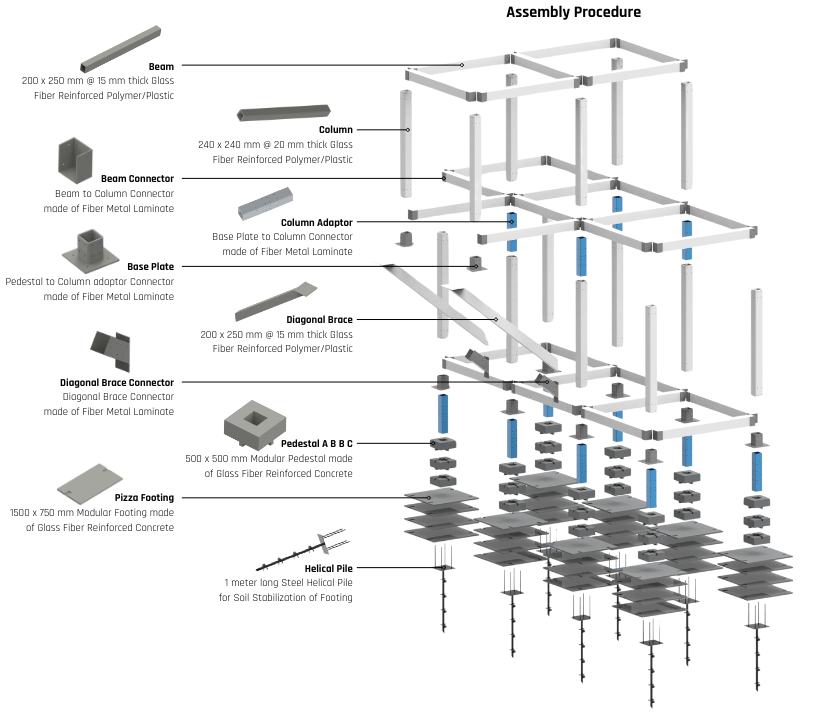
Why Choose AI PEB Homes?
By integrating AI-driven construction processes, HomeQube takes PEB Homes to the next level.
AI PEB homes deliver exceptional mass complexity, allowing buyers to personalize their homes according to individual preferences and the unique environmental factors of their location.
The combination of PEB technology and AI-driven insights results in homes that are designed to maximize efficiency, both in terms of energy usage and space optimization. HomeQube’s AI PEB homes are built faster, with fewer errors, ensuring that every home is constructed to the highest standard of quality and safety.
These homes are a great option for today’s homeowners who prioritize affordability, quick build times, sustainability, and innovative technology. Whether you're looking for a tailored family home or an eco-conscious vacation retreat, HomeQube’s AI PEB homes seamlessly blend modern design with sustainability.
